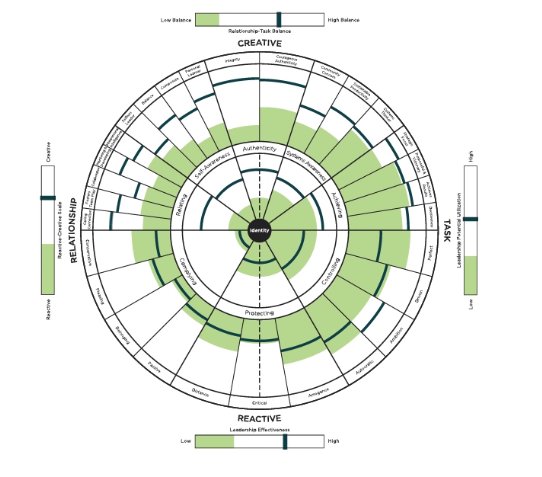My Leadership Circle Profile
What’s this leadership circle profile all about?
Before that, I believe in the market there are many tools to measure leadership. And this is just one of them. The way it does this is to breakdown your behavior and action against the following condition:
- Creative vs Reactive
- Relationship vs Task
Both of these is further broken into sub-category as shown in the diagram.

They get the score by sending out 360 leadership assessments to all the people that we work closely with. Upon completing it, you’ll see the Self Score (bold line) and the rater’s Aggregate Score (green shading).
Or read more here.
My Scores
Not wanting to spill out too much of the profiling beans here, and for my own profile privacy, I’d decided to keep my profile score private. For that, I just dive into my score reflection and how do I improve further.
From afar, the score I am getting is very much balanced. The first thing we should see is the leadership effectiveness.

I am deeply humbled by how my teammate and colleague rated me for the unexpectedly good score. At least, this reinforces my belief in the things I learned and do to provide the best for my team and department, all while getting the job done right. It also solidifies the leadership philosophy and learning I gained over the past three years on how to be effective as a leader.
It all started by reading these books that I think changed my mindset as an effective leader.
- Trillion Dollar Coach
- High output Management
- Five Dysfunctions of a Team
- One thing
My Reflection
Back to the reflection, reading back on the comment. The general sentiment I got from it is my technical knowledge and passion for the industry and acting truly as a servant leader to build teams. On the flip side, I do resonate deeply with having issues managing my own bandwidth. My boss always asks me to delegate my work. But, am I not “delegating” effectively enough, or there is an art I should explore deeper in delegating?
I have been advised to read more about how “courage” and “integrity” sections.
Reflecting on my journey as a senior leader, I’ve come to realize the importance of having my own set of core principles to guide decision-making. I consider myself flexible in my mindset, which tends to change direction when there is an approach with better logic and reasoning put up. I am good at reasoning and adapting to new ideas quickly. That is also the same reason why I am good at imitating the intention and passing down the principles.
I do spend on strategic thinking and vision. Just that, I value open and collaborative conversations where I can spar ideas with others, seeking win-win solutions. It works well for me so far by adapting and incorporating those feedback into my strategies.
I must say, usually, individuals with higher titles possess must better reasoning skills and embrace their wisdom. I learned not to feel inferior. Instead, I see these individuals as sources of inspiration and knowledge. It’s essential for me to engage in casual conversations to seek opportunities to learn from their experiences. I believe this approach helps me to eventually build a core principle that I truly believe in that is a derivative of my own.
